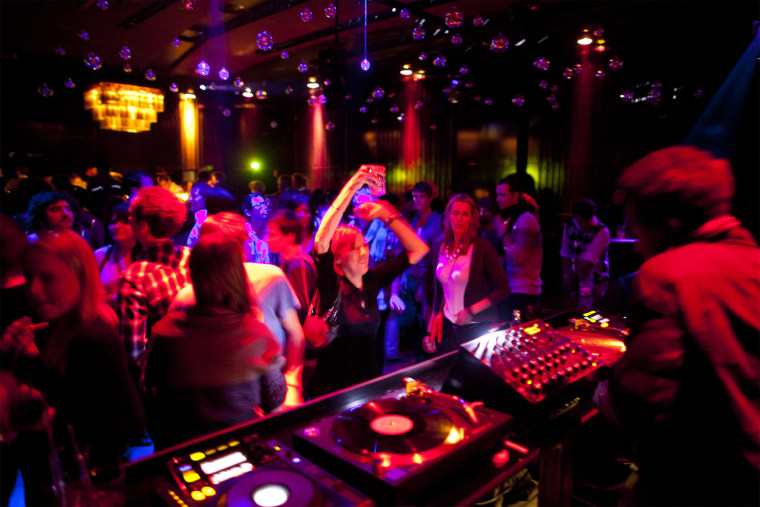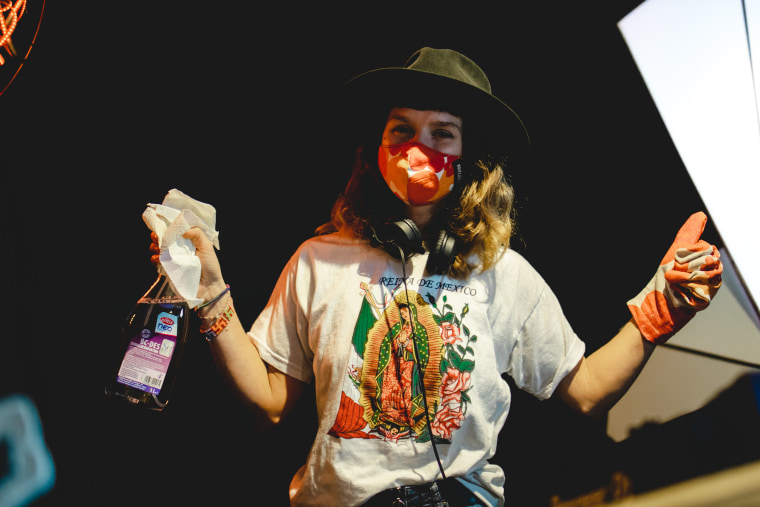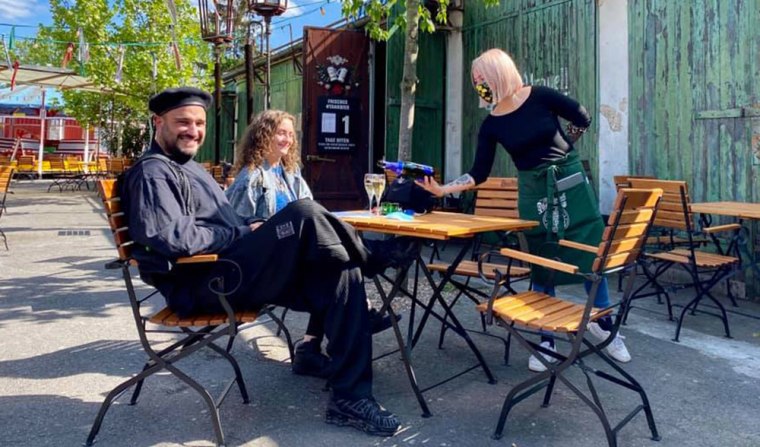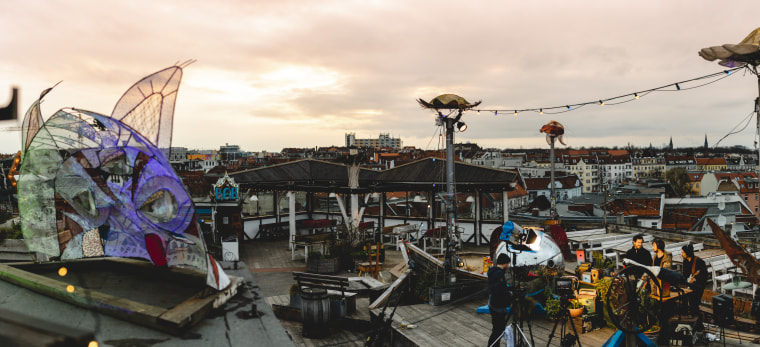Nights in Berlin — normally filled with music, laughter and drinks — have been eerily quiet for the last few months as Germany battles the coronavirus pandemic.
While some parts of the country’s economy are starting to emerge from the lockdown, Berlin’s vibrant club scene is facing perhaps the biggest challenge in its history, with no clear answers on when it might resume.
“The signals we get from the experts are that the club culture is not possible until there is a vaccine,” Lutz Leichsenring, spokesman for a commission representing 300 clubs in Berlin, said.
He said the situation is “devastating” for the industry, which was already struggling with gentrification and rising real estate prices.
Many of the 9,000 people employed in the city’s clubs have been left without work. And for the owners, costs are still accumulating even as the revenue has completely dried up.

Berlin’s club culture took shape after the fall of the Berlin Wall in 1989, when a lot of free space opened up in former factories and abandoned buildings. Some of that space morphed into clubs that became part of the city’s identity.
“The clubs are part of the city’s DNA — a bit rebellious, a bit unconventional,” Leichsenring said. “Berlin is a city of freedom. And that image is very much represented by the people involved in the club culture in the city.”
For now, the lights have been dimmed and dance floors shut, with Berlin authorities saying there is no prospect of the clubs reopening anytime soon.
The German government has been supportive through a combination of aid packages, Leichsenring said. And Berlin’s local government told NBC News that clubs can receive support funds of up to 25,000 euro ($28,000) from the city.
But many in the industry are worried the clubs will be the last ones to reopen because of their very nature — people mixing together in close proximity, a big no-no during a pandemic.
Another concern is that, with no money coming in, clubs that are unable to pay rent stand to be replaced by real estate developments.
“We will lose creative space in the city center, which will be used for shopping malls or apartment buildings,” Leichsenring said. “It will change the face of Berlin, definitely.”
Fighting for survival, some Berlin clubs are trying to reinvent their business models.

Last month, a small number of clubs with outdoor spaces reopened as beer gardens, serving food and drinks to limited crowds, with strict social-distancing measures in place.
“We used to have big tables. Now only a few people are allowed to sit together,” said event manager Justyna Jereczek at Birgit&Bier, in Berlin’s trendy Kreuzberg district.
Even before the pandemic, the club used its outdoor space as a beer garden during summer months. Now, it is the only part of the business they can operate, as the dance floor remains shut.
Customers have to wear masks to enter and exit, or if they want to use the bathroom, and must stay at least 5 feet away from one another at all times. Entry is by reservation only, with doors closing at 11 p.m. – a novelty for Berlin’s club scene, which is used to parties that last way into the morning.
But after months of being stuck at home, even that is a novelty for patrons, Jereczek said.
“Customers are happy that they can finally go out and not just have a beer on their balconies,” she added.
Robin Schellenberg, a DJ and co-manager of Klunkerkranich, a rooftop club in Berlin’s Neukölln district, said it reopened the space for food and drink last Friday. With a 5,000-square-meter (1.2 acre) space on top of a shopping mall parking garage and panoramic views of the city, it’s a popular spot for locals and tourists.
Now, patrons can come in for a socially distant meal or drink ordered off a digital menu. They also have to stay at their assigned tables or wear a mask to walk around.
“It’s kind of like the new normal, but far from being that,” Schellenberg said.

But that is not a solution for Tom Szana, manager of Ipse, a club just a short walk from Birgit&Bier.
“Turning the club into a beer garden won't bring enough revenue to overcome the situation we're in,” Szana, 34, said. “Plus if clubs become beer gardens, lose their usp," he said, referring to their distinctive characteristics. “They're just another beer garden.”
He also fears that reopening the clubs too early could increase the risk of a second wave of the coronavirus and lead to a prolonged lockdown.
Those fears are not groundless. A spike in coronavirus cases in South Korea last month was linked to nightclubs and bars in the capital, Seoul, raising the alarm with health officials worldwide.
Ultimately, the future of Berlin’s club scene may depend on the people who keep it going — the partygoers.
“People need to be willing to go out and have money to spend if they do,” Leichsenring said. With so many losing their jobs, he said it will be a challenge for the clubs to not raise prices and keep the club culture inclusive and accessible.
“It’s not really a bright future to be honest, even though we are just in the beginning of this crisis,” he said.
“Our business model is to bring people together for social interaction by creating music and art, and this is simply the worst time to do this.”


